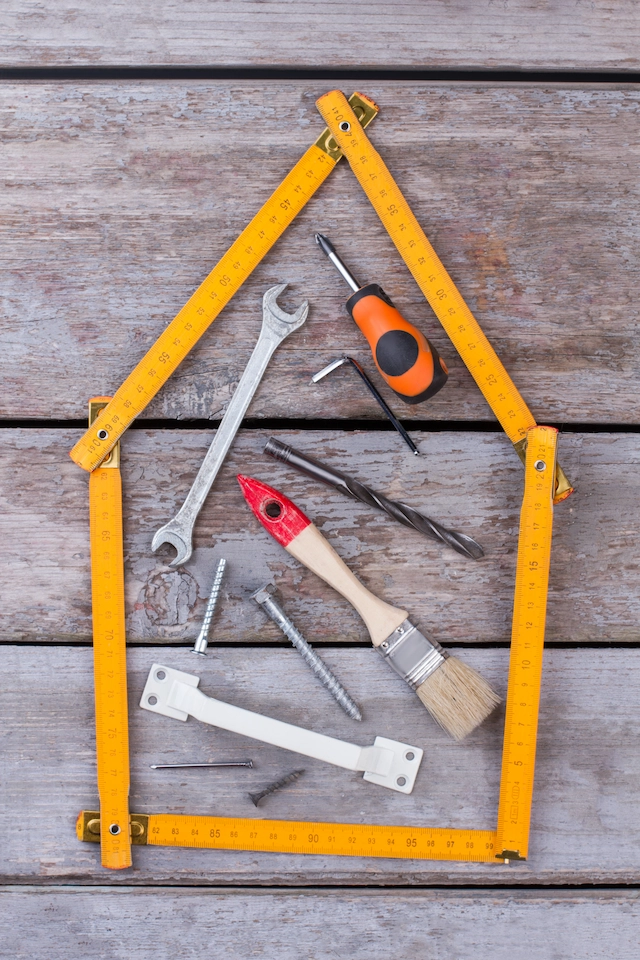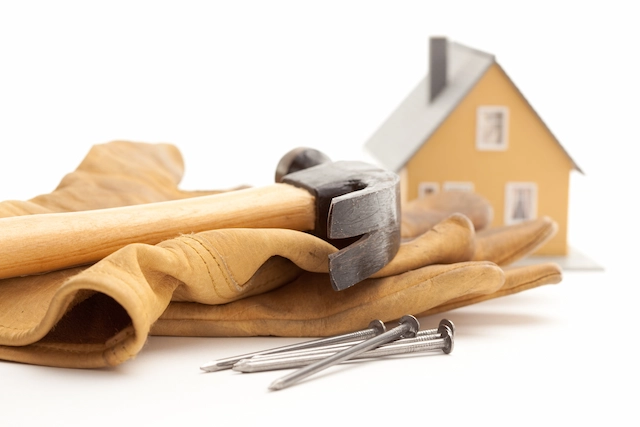Solved!
Like most homeowners, you want your backyard deck to last for years without any problems. So what’s the best decking material to choose? There are many options out there, but not all of them are created equal. Here’s a look at the pros and cons of three popular decking materials: wood, composite, vinyl, cedar, redwood and tropical hardwoods.
Which one is right for your home? Read on to find out!
Wood decking pros:
There are plenty of pros to natural wood decking, making it a popular choice for homeowners looking to add some outdoor living space to their property.
- Wood is a natural material so it can add some character to your backyard.
- Wood decking is pleasing to the eye, durable, and easy to maintain, meaning you can enjoy your deck for years to come.
- In addition, compared to other materials like composite decking or concrete, wood is a more affordable option.
- Another advantage of wood decking is that it provides good traction and is slip-resistant, making it safe for everyone in your family.
- Wood decks can be custom designed to fit any space and budget.
- A wood deck will likely increase its resale value if you ever sell your home.
- Installation is relatively easy.
Wood decking cons:
- Wood can rot and warp over time, so you’ll have to replace it more often than other materials.
- It can be susceptible to insect damage.
- It requires regular maintenance, such as staining and sealing.
Composite decking pros:
- Composite is made from recycled materials, so it’s environmentally friendly.
- Composite decking materials are made of wood and plastic fibers, which gives it some pros over traditional wood decking.
- Composite decking is resistant to rot and decay to lasts longer than traditional wood decking.
- Composite decking is typically more stain-resistant than wood decking, meaning it will look newer for longer.
- Composite decking is not as susceptible to mold and mildew as wood decking, so you’ll spend less time cleaning your deck.
- Composite decking is often more environmentally friendly than traditional wood decking because it’s made from recycled materials.
- It is resistant to water damage, making it ideal for many homeowners.
Composite decking cons:
- It can be more expensive than wood.
- Some people find the plastic feel of composite decking to be unattractive.
- It is not real wood.
Vinyl decking pros:
- Vinyl is incredibly durable and can last for years with minimal upkeep.
- Vinyl is weather resistant and will not warp or rot in any weather.
- You can choose from various colors and styles to find the perfect look for your home.
- Vinyl decking requires very little maintenance in comparison.
- Vinyl is easy to clean and doesn’t require much maintenance. Simple washing with soap and water is usually all needed to keep it clean.
- Vinyl is the most durable decking material, and it doesn’t rot, warp, or fade.
Vinyl decking cons:
- It’s also the most expensive option.
- Some people find the look of vinyl decking to be artificial or plastic-like.
- It’s not as environmentally friendly as other materials.
Cedar decking pros
- Cedar is a popular type of wood for outdoor projects such as decks, fences, and siding.
- Cedar is an extremely durable wood resistant to rot, insect damage, and decay.
- Cedar has a natural resistance to weathering, meaning it will hold up well in sun, rain, and snow.
- Cedar has a beautiful grain pattern that adds character and beauty to any project.
When selecting cedar for your next project, choose kiln-dried lumber for the best results. Kiln-drying removes excess moisture from the wood, making it less likely to warp or shrink over time.
Cedar decking cons
- If the wood is not properly sealed and maintained, it can start to warp and crumble over time.
- In addition, cedar is one of the more expensive types of wood, so it may not be the best option if you are working with a tight budget.
However, if you decide to use cedar for your outdoor deck, it is important to choose high-quality lumber that has been properly kiln-dried to minimize the risk of warping and splitting.
Redwood decking pros
- Redwood is an ideal material for decking thanks to its natural resistance to rot and insects and its ability to withstand harsh weather conditions.
- Redwood has a natural reddish hue that adds warmth and character to any outdoor space.
- It is also one of the most affordable decking materials on the market.
- A redwood deck can last for decades when properly cared for, providing years of enjoyment for family and friends.
Redwood decking cons
- One of the biggest downsides of redwood is the cost. Redwood is one of the more expensive decking options on the market, and it cannot be easy to find reasonably priced lumber.
- In addition, redwood requires regular maintenance to keep it looking its best.
- The wood is susceptible to staining and fading, and it needs to be sealed and cleaned regularly.
Tropical hardwoods pros
- Tropical hardwoods such as teak and ipe are some of the most durable decking materials available.
- These woods are resistant to rot, decay, and insect damage, and they can withstand even the harshest weather conditions.
- Tropical hardwoods have a beautiful natural grain pattern that adds character and elegance to any deck.
Tropical hardwoods cons
- These woods are some of the most expensive options on the market, and they can be difficult to find in a reasonable price range.
- Tropical hardwoods require regular maintenance to keep them looking their best.
- The wood needs to be sealed and cleaned regularly to prevent staining and fading.
Final lines:
So, what’s the best decking material for your home? It depends on your needs and budget. If you want a durable, low-maintenance option, vinyl decking is the way. If you’re looking for a more natural look, wood decking is good. If you want the best of both worlds, composite decking is a good option – it’s durable and environmentally friendly. No matter what material you choose, go for sihomerenovations.com. You will surely love their services. Do your research and compare prices before you buy!
FAQs:
What is the best wood type and color for decks?
There is no one “best” type of wood for decks, as each has its pros and cons. Some popular types of wood include cedar, redwood, and pressure-treated pine. As for colors, there are a variety of options to choose from. Be sure to consult with a decking contractor to find out the best fit for your home.
What is the lifespan of different types of decking materials?
The lifespan of different types of decking materials varies. Wood decks typically last for around 10-15 years, while composite decks can last for 25 years. Vinyl decks have the longest lifespan, lasting 30-40 years.
What are good wood deck designs?
There is no one “right” design for wood decks, as each homeowner’s needs will be different. However, some popular designs include a simple rectangular deck, an L-shaped deck, or a U-shaped deck. Be sure to consult with a decking contractor to get ideas and find out what would work best for your home.
What is the difference between composite and vinyl decking?
Composite decking is made from recycled materials, such as plastic and wood fibers. Vinyl decking is made from PVC (polyvinyl chloride) and is the most durable decking material. Composite decking is more environmentally friendly than vinyl, but vinyl is less expensive than composite. Both materials are easy to clean and require little maintenance.
What is the best material to build a small elevated deck out of?
The best material to build a small elevated deck out of would-be treated lumber, such as pine or cedar. This type of lumber is durable and will last for many years with proper maintenance. Be sure to consult with a decking contractor to get more specific recommendations and prices.
Is pressure-treated wood good for a deck?
Pressure-treated wood is a good choice for deck material, as it is durable and resistant to rot and decay. However, it is important to note that this type of wood is not waterproof and will need to be sealed and stained regularly.








